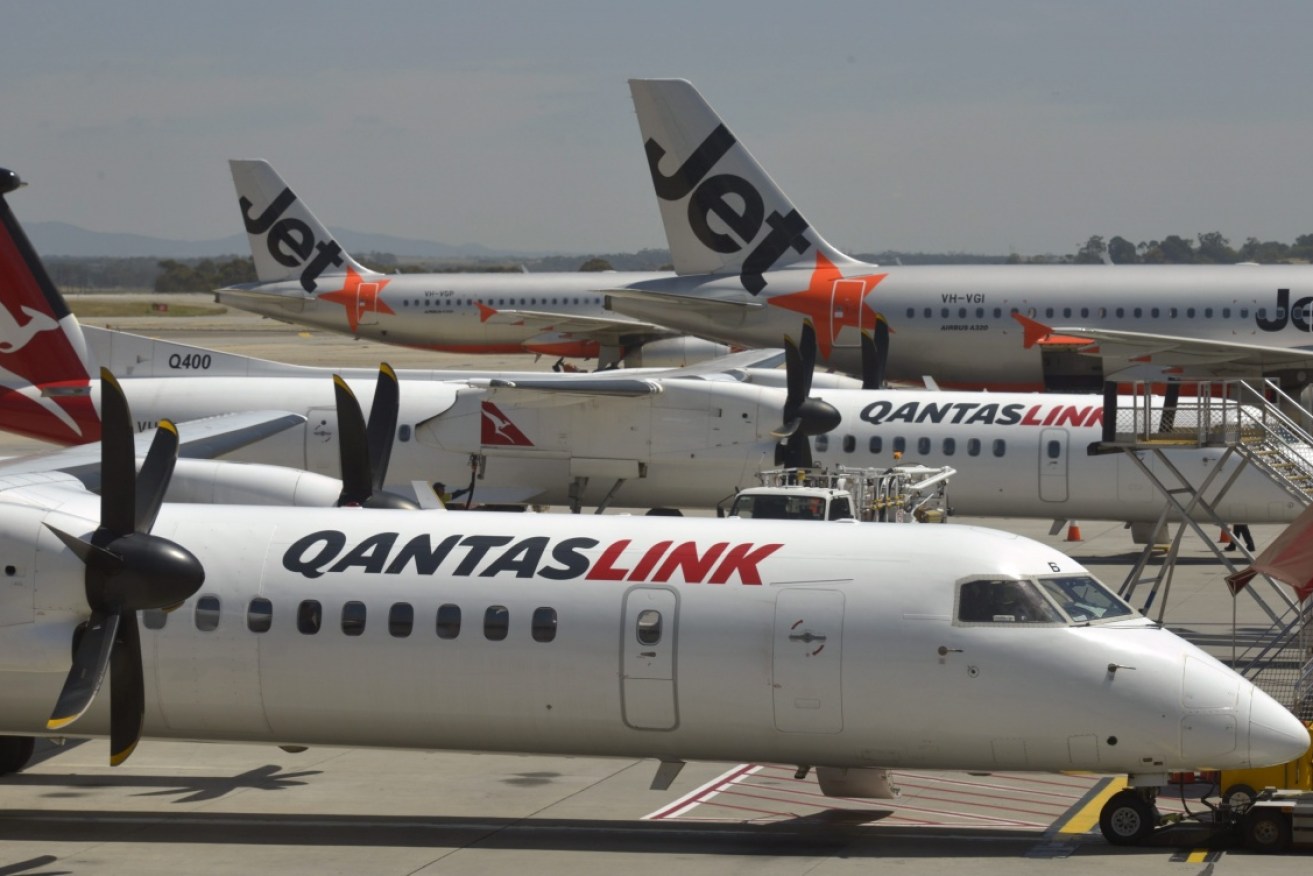Why the cost of air travel may be about to take off


An international survey has rated Australian airlines Jetstar, Virgin and Qantas "sub-par". Photo: AAP
If you are planning an overseas holiday, you may want to act soon, with the cost of air travel set to rise, one aviation expert has cautioned.
The advice comes a day after the global meeting of the International Air Transport Association (IATA), which has delivered a gloomy forecast for airlines worldwide.
The threat of higher fuel costs and the escalating trade war between China and the United States are weighing heavily on airlines’ profit, as well as cut-throat competition, IATA said in a statement.
The body said it was cutting the profit outlook to $US28 billion ($40.33 billion) from the $US35.5 billion ($51.1 billion) that was forecast in December – a 26.7 per cent downgrade.
“The business environment for airlines has deteriorated with rising fuel prices and a substantial weakening of world trade,” the group said.
The group’s director general and chief executive, Alexandre de Juniac, warned that “creeping protectionist or isolationist political agendas are on the rise”, posing a risk to air travel and transport business.
And while it might seem a logical response for airlines to cut prices to get people travelling again, the opposite is more likely to happen, according to aviation commentator Professor Greg Bamber of the Monash Business School.
Professor Bamber said aviation was a “very volatile” industry that ran on thin margins at the best of times, but with the ongoing trade war between the US and China causing global uncertainty and rising costs, the sector was battling strong headwinds.
“That [trade war] is reducing trade between two very big economies, and already leading to less travel and less freight being shipped around the world,” Professor Bamber said.
“But Asia-Pacific, including Australia, is hit harder than say Europe, so IATA is forecasting lower margins in this region, which is also a highly competitive market.”
IATA forecast a 22 per cent profit slump in the Asia-Pacific region (from $11.1 billion in 2018 to $8.64 billion in 2019) as it was “the most exposed to weakness in world trade” when “combined with higher fuel costs”.
Despite Australia’s air travel market being one of the world’s slowest-growing domestic markets in the world, Professor Bamber believed Qantas and Virgin Australia were unlikely to begin discounting, after the last price war left both licking some financial wounds.
“Virgin Australia’s new chief executive [Paul Scurrah] is very pragmatic, and so I don’t think we will see any price reductions, but rather higher prices due to higher fuel prices,” he said.
“Fuel prices have gone up, airport charges have risen so it won’t be a rosy picture for air travellers in the near future,” he said.
“If you have travel plans, you might want to book tickets earlier rather than later, because ticket prices probably won’t be coming down in price.”
Airlines may instead look to recoup some profits by rationalising its other major cost components: The cost of aircraft, fuel, labour costs and airport charges – none of which is coming down in price.
In a May trading update, Virgin conceded that weaker demand and higher fuel prices were presenting “challenges” to the airline’s profitability. But the airline would not be drawn on whether it would raise ticket prices. Qantas did not respond to questions from The New Daily before deadline.
Head of research at the Centre for Asia-Pacific Aviation Simon Elsegood told The New Daily it was little surprise that air travel had slowed given the slowdown in global economic growth.
Mr Elsegood said the rule of thumb is that air travel grows at 1½ to two times the rate of global GDP growth. With the IMF reducing many GDP growth targets to 2 per cent, air travel could be expected to grow at 4 to 5 per cent, whereas it has been growing at 6 per cent in recent years.
But Mr Elsegood said while fares can sometimes drop in the face of a slump in air travel, airlines’ responses varied widely and depended on the particular market the airline operated in, routes, loadings and level of competition.
To try and recoup profit, airlines may look to rationalise their fleet instead of simply cutting prices, phasing out certain planes earlier than scheduled.
“Generally, the supply of seats tightens up in reaction to any slowing of air travel,” Mr Elsegood said.








